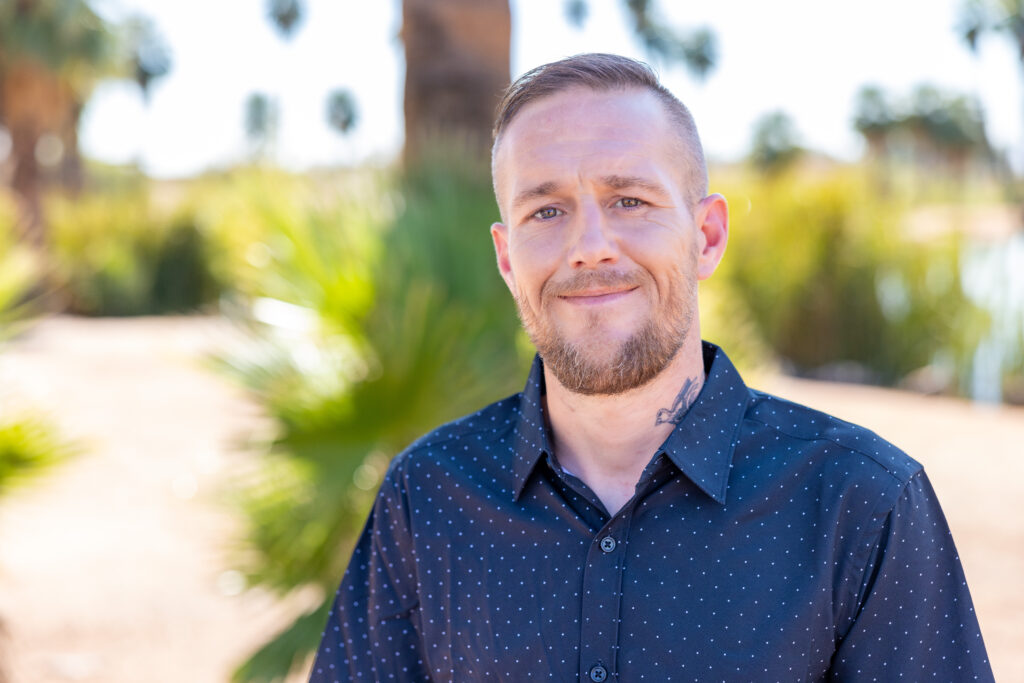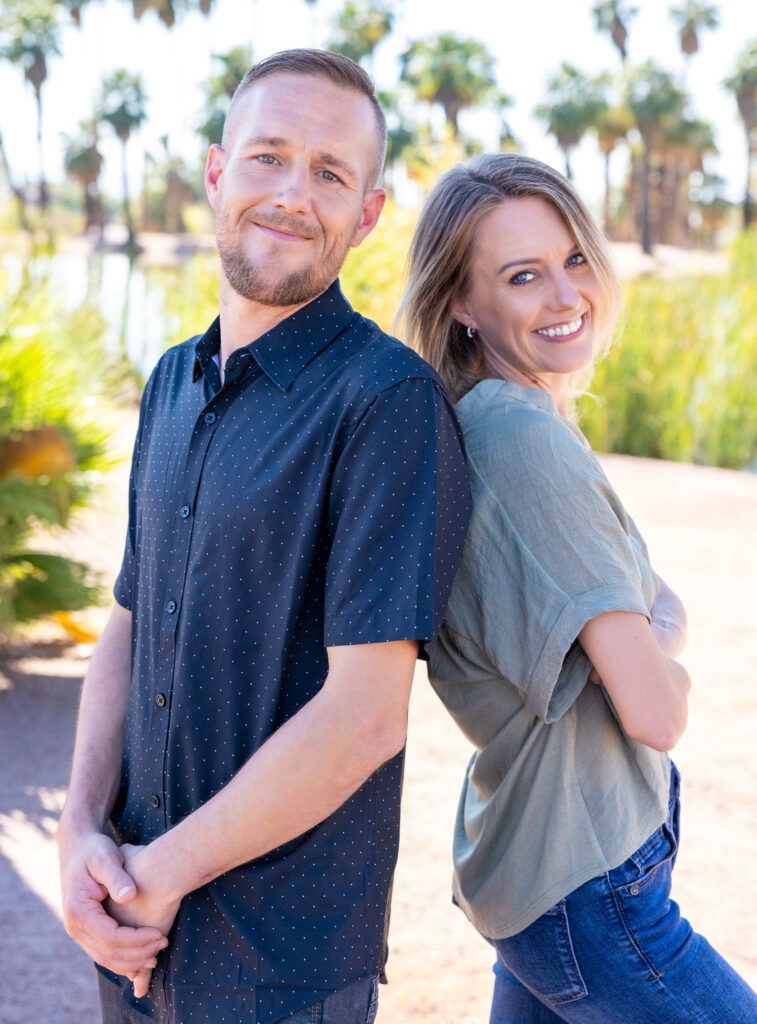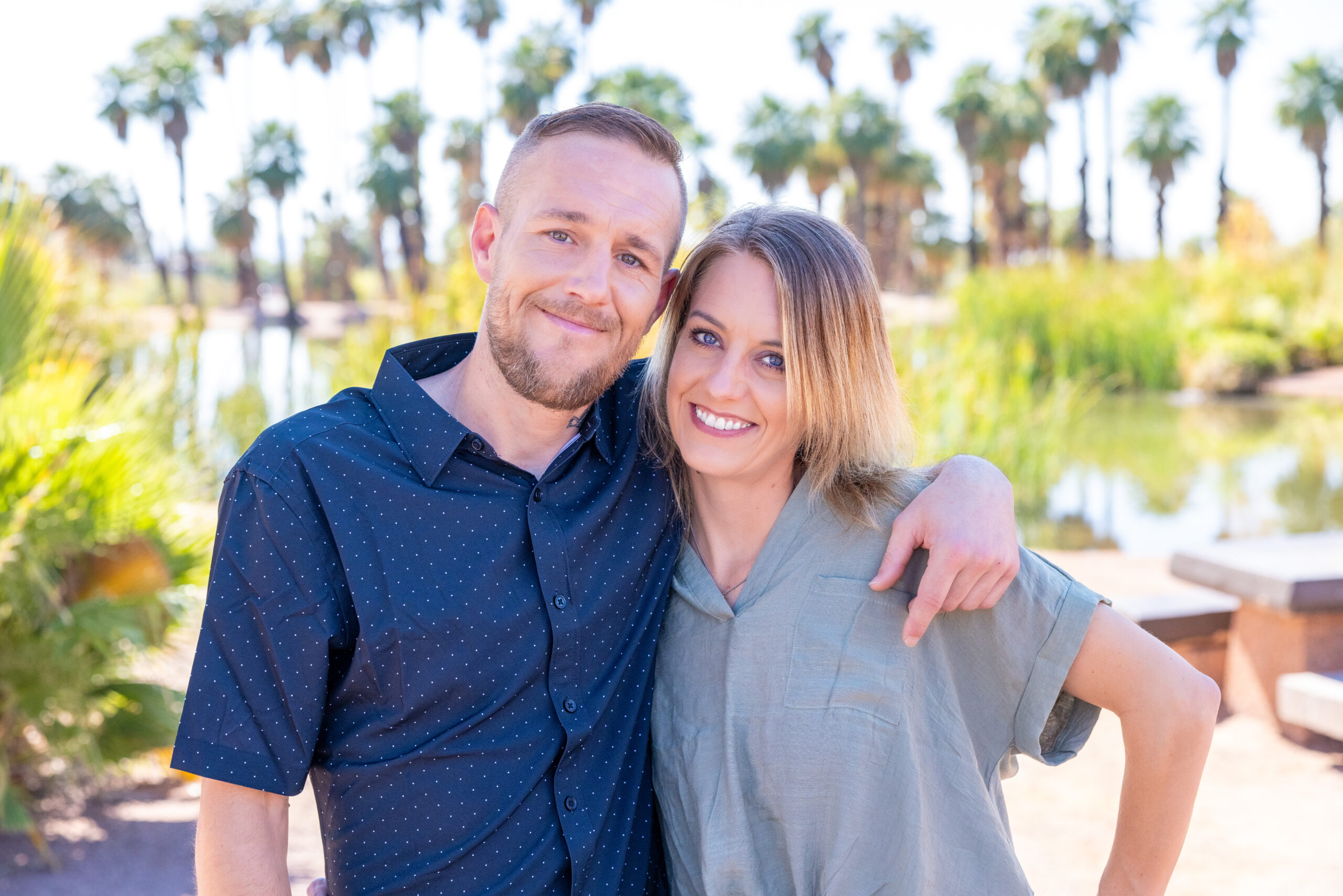In his 20s and early 30s, Michael seemed successful and happy.
He had risen up the ranks at a national chain restaurant – and was the youngest person in the region, maybe the country, to become the general manager of one of their locations. He was working hard – 70 hours a week – and making good money. He thought he was having fun on his time off as well.
But when Michael looks back on it now, he realizes he was already struggling with addiction. He drank too much and used cocaine. He sometimes came to work without having slept at all the night before. But he still got the job done. He was masking his addiction fairly well.
That eventually changed. The substance use, the hours, and the lack of sleep all took its toll. He left his job and briefly moved out of state. Most critically, Michael was injured in a motorcycle accident and prescribed opioid analgesics (more commonly known as prescription painkillers), which he also became addicted to.
For many people, opioid addiction begins with a prescription for medication to treat pain for a physical injury. These prescription medications are as addictive as illicit opioids like heroin. With all categories of opioids – whether prescribed or purchased on the street – people require higher and higher dosages to overcome their increasing tolerance. This tolerance leads to dependence, characterized by withdrawal symptoms that occur as the drug leaves a person’s system, bringing immense discomfort. Despite being prescribed by a doctor, many people still become dependent.

Michael, like many people who become dependent on prescribed opioids, began using heroin when he could no longer access his prescriptions. To support his addiction, he eventually began selling it, too.
For people who loved him, like his sister, Taylor, Michael’s lapse into heroin addiction was terrifying to watch. She knew that it was potentially lethal. Opioid use interrupts the part of a person’s brain that controls the breathing reflex. In high dosages, people can go into respiratory arrest. “Growing up, it was just me and him. We were best friends,” Taylor said. “I never thought that someday he would not be around. I thought we would be the best brother and sister, even in adulthood. I never envisioned him not being there.”
Taylor had lost one friend to drug addiction and was scared to lose Michael, too. She did what she could to educate herself on addiction, one day watching a TED Talk by Johann Hari, researcher and author of “Lost Connections,” in which the author offers the hypothesis that addiction is exacerbated by weakening social ties. According to Hari, social connections are a powerful tool to help people break their addiction.
The TED talk resonated with Taylor because she had taken a hard-line stance when her friend was struggling with addiction by distancing herself and cutting off ties. Now she wished she would have made an effort to stay more connected. She vowed to do better with Michael – and she did. “A lot of people cut ties with me,” Michael said. “But my sister stuck with me.”
Specialists of addiction medicine would confirm that Michael was struggling with a chemical addiction that infiltrated all parts of his life and had spiraled beyond his control. His dependence made him sick. He would go into regular withdrawals and to keep his body functioning, he regularly broke the law. Eventually, Michael was arrested for selling heroin and sentenced to three years in prison.
To Michael, it seemed like it might be a turning point. “I thrived in prison,” he said. “I was super healthy. I was disciplined in prison. I did everything. I tutored people to help them get their GED in prison.” He was also sober.
For Taylor, the time her brother spent in prison was bittersweet. She missed him and staying in touch was difficult – phone calls were expensive and visits were sometimes difficult to orchestrate. “But I knew where he was and I knew he was safe to an extent,” she said.
While in some ways Michael was healthier when he was in prison, he had not taken steps to address the root causes of his addiction. Being in a custodial setting made sobriety easier to achieve, but he wasn’t learning the skills he would need to stay sober once he got out.
When he was released, he found himself consumed by anxiety and fear. “It’s uncomfortable. I didn’t know how to handle it,” he said. Like many people reentering society after a period of incarceration, he faced an especially challenging environment. He had a felony conviction on his record, which made finding employment and accessing supportive services more difficult. He was also reorienting himself to his family and social life. But, having not achieved the tools he believed he needed to stay sober, he was almost immediately using heroin again.
Within a short period of time, Michael was unhoused and living in a park. Then he was arrested again, this time for drug possession. Bail was set at $500, which he could not afford.
“I realized I needed to change something in my life,” he said. “I was just doing the same things and hoping for a different result.”

He was incarcerated in the Maricopa County jails, which have been notorious for harsh conditions and poor-quality food. In 2008 and 2010, a federal judge said the county jails violated the rights of those being held by serving moldy or rotten food, denying health care, among other injustices. A new sheriff elected in 2016 promised to make reforms, but the jail has remained controversial because of its handling of Covid-19 in 2020 and how staffing challenges have affected conditions in the jail.
Michael said that while he was there, he was provided two small meals a day – once every 12 hours. Every morning, he had a peanut butter and jelly sandwich, milk, an orange, and two cookies the size of an Oreo. For dinner, he had something they called “slop” and broccoli stems – not the florets – with applesauce and the same cookies.
Michael’s next court date was a month away, and without $500 for bail, he had no way of getting out before then. He didn’t have a lot of confidence that the judge would do anything but sentence him harshly. He felt hopeless. Although he believed in himself, he felt that no one else would.
But then he got some great news. His girlfriend had contacted The Bail Project to ask for assistance paying his bail. In her request for support, she noted that Michael had saved her from an abusive relationship – and had always supported her.
In short order, The Bail Project paid bail and Michael was released. The staff helped connect him to recovery resources and provided him with rides to court. That meant that when Michael did appear before the judge, he was sober, with almost a month of recovery behind him. He had a new job working to assemble and disassemble office furniture. With his earnings, he could buy nice clothes to wear to court.
Michael said being out on bail made a huge difference. “I had the opportunity to start putting some action behind what I was talking about. I was able to be proactive before going to court – instead of showing up to court in my oranges [i.e., jail clothes]. Already, I was doing what I’m supposed to do.”
Research shows that being released pretrial can make meaningful differences on individual court outcomes. Research shows that relative to similarly situated individuals who are detained pretrial, individuals who are released during pretrial are significantly less likely to be: convicted; sentenced to incarceration; and receive longer sentences. Simply being detained pretrial creates a greater likelihood of being convicted and receiving a harsher sentence compared to those who are not detained pretrial. Evidence also points to how pretrial detention leads to consequences outside of the criminal justice system, too. For instance, formerly incarcerated people can struggle to find employment, and when they do, they experience a decrease in average hourly wage and annual earnings.
Michael says that through his recovery program, he has learned how to better manage his emotions and his reactions, especially by using concepts of acceptance and mindfulness. He is better able to examine his own reactions and triggers. He is living in a sober living facility with five other men, all who are serious about their sobriety.
“My life is now a full 180 degrees different,” he said. “I wake up, I work, I attend meetings…I have a completely different outlook on life. I’m more at peace.”
For Taylor, Michael’s new life is amazing. For loved ones, spending unstructured time together with someone who had been previously incarcerated is especially precious. Taylor and Michael get together every Sunday, go out on lunch dates, and shop at thrift stores. When Taylor was getting ready to move, she asked him to come over and help with heavy furniture. It was an emotional moment for her.
“It was nice to have someone reliable to count on again,” Taylor said. “And it’s my brother! I love having him in my life.”
Now, Michael sometimes sees unhoused people living in the park in Phoenix, carrying their backpacks in the heat. He knows many of them are struggling with addictions. “That was me, every day,” he said.
Michael is enjoying a new chapter in his life. “This is the most mature [I’ve felt in] my life,” he said. “I feel like I’m heading in the right direction.”
View this post on Instagram
Thank you for reading. The Bail Project is a 501(c)(3) nonprofit organization that is only able to provide direct services and sustain systems change work through donations from people like you. If you found value in this article, please consider supporting our work today.











